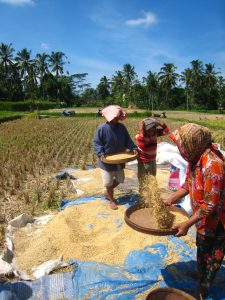Jakarta – Citra Borneo Utama (CBUT), a crude palm oil processor, is gradually shifting to green energy to help the government’s goal of net-zero carbon emission by 2060, executives said.
CBUT has recently taken steps to switch to compressed natural gas (CNG) from diesel for some of its refinery high pressure boilers and is targeting to stop using diesel completely by the end of the year, Chief Operating Officer Magedona Aegidius said.
CNG is a fuel gas mainly composed of methane (CH4) extracted from natural gas, compressed to less than 1% of the volume it occupies at standard atmospheric.
Being a listed company on the Indonesia Stock Exchange, (IDX) CBUT has a dedicated team tasked to improve its environmental, social and good corporate governance (ESG) performance, Naidu said. The IDX requires all listed companies to report their sustainability report annually.
Meanwhile, CBUT’s company Citra Borneo Indah, is building 2 x 7.5 MW biomass power plants, which will replace the existing coal-fueled plants powering CBUT’s plants in Central Kalimantan, CBUT’s Chief Executive Officer Balakrishnan Naidu said.
CBUT operates one CPO refining plant with daily capacity of 2,500 metric tons, and in the process of building a second plant with daily capacity of 1,500 tons, which is slated to begin operations in 2024, Aegidius said. It also operates a 2,500 MT/day fractionation plants, and is building a 1,000 MT/day second plants, planned to start operations next year.
The company, which was established in 2013, produces refined bleached deodorized palm oil, refined bleached deodorized palm olein, refined bleached deodorized palm stearin, palm fatty acid distillate, crude palm kernel oil, palm kernel expeller (a by-product of the crushing and expelling of oil from palm kernel, widely use as animal feed because it contains high levels of crude protein).
Frequently blamed for the massive and quick deforestation in Indonesia, palm oil industry plays a major role for the nation’s economy as it contributes around 3.5% to its gross domestic product and is providing jobs to around 16 million workers.
With a total oil palm plantation of 16.38 million hectares and annual CPO output of 46.8 million tons, according to official data, Indonesia is one of the two major CPO producers in the world along with Malaysia. (I Made Sentana)













